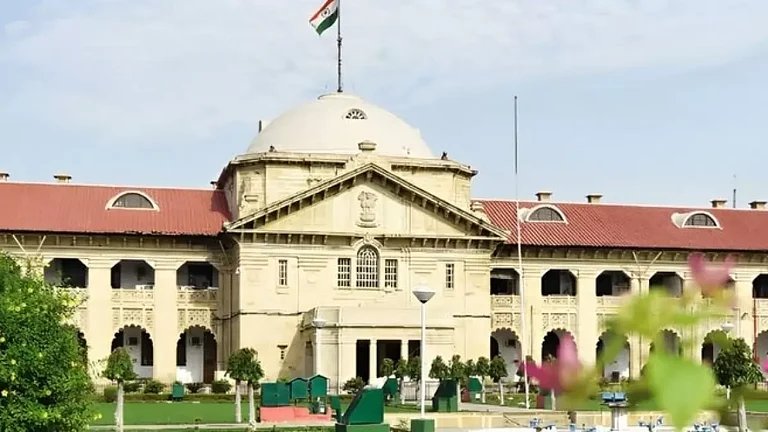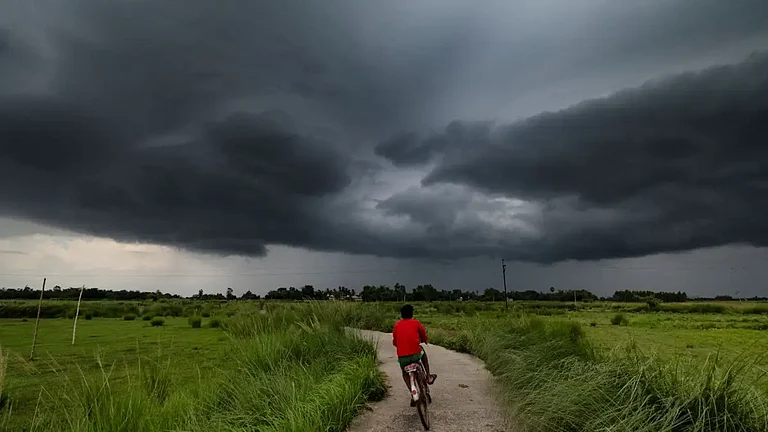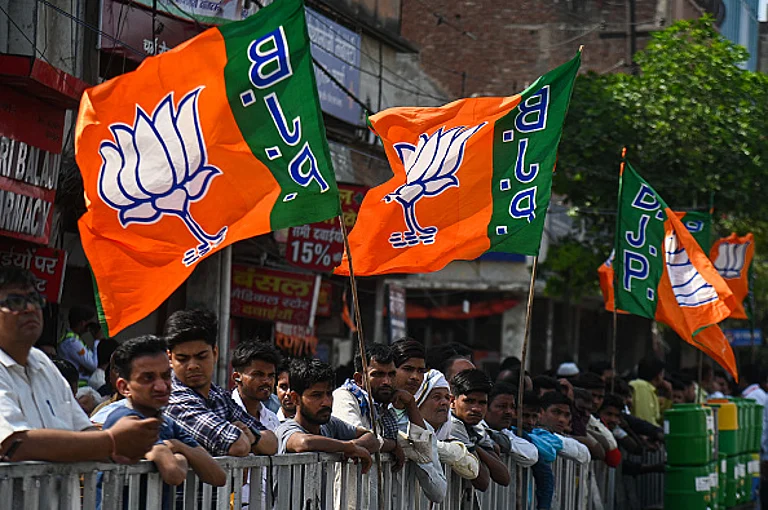Uttar Pradesh is perhaps the most important state for the Bharatiya Janata Party, which has been strongly associated with the state since its inception. The Bharatiya Jana Sangh (BJS), the precursor to the BJP, has a significant historical connection with Uttar Pradesh. The Jana Sangh established a presence in Uttar Pradesh from its inception as it understood the electoral importance of the state due to its large number of parliamentary seats. Being one of the largest and most populous states in India, it was crucial for the party's expansion and electoral strategy. Even at a time when Congress wilded the dominant hand, Jana Sangh recognized the electoral potential of the state early on and focused on building support among the electorate. Over the years, the Bharatiya Jana Sangh, and later the BJP, worked diligently to expand its base in UP. Through grassroots organizing, mobilization efforts, and strategic alliances with regional parties, the BJP gradually increased its influence in the state. Several prominent leaders of the Bharatiya Jana Sangh hailed from Uttar Pradesh or had strong connections to the state. This includes leaders like Atal Bihari Vajpayee, who served as a Member of Parliament from various constituencies in Uttar Pradesh and played a pivotal role in shaping the party's ideology and strategy. Prime Minister Narendra Modi is also an MP from the Varanasi constituency, a culturally and politically significant seat in UP as well as among Hindu voters who form the core of the BJP's voter base. Party leaders as well as supporters in UP credit the 'Modi wave' for the BJP's recent success in the state.
BJP’s Ideological Journey in Uttar Pradesh: Hindutva And Beyond
In terms of ideology, the BJP has relied on a multifaceted Hindutva strategy in the state, leveraging socio-religious issues to consolidate its support base and secure electoral victories. The following have been the key aspects of the BJP's ideological strategy in UP:
Ram Janmabhoomi Movement
Mobilization around Ayodhya has been one of the party’s oldest and perhaps most successful political planks. The BJP capitalized on the emotive issue of the Ram Janmabhoomi-Babri Masjid dispute in Ayodhya, portraying itself as the defender of Hindu interests and advocating for the construction of a Ram temple at the disputed site. The party achieved mass mobilization around the issue by organizing large-scale rallies, yatras (religious processions), and public campaigns to galvanize support for the Ram temple construction, mobilizing Hindu voters around a shared religious sentiment. Its use of ‘civil society’ organisations like VHP, RSS and other organisations was key to spreading support for the movement on ground while groups like Bajrang Dal led the militant aspect of the movement. In 2024, with the construction of the Ram Temple and consecration ceremony, the party has claimed to have fulfilled its promise.
Cultural Nationalism And Hindutva
The BJP has sought to integrate Hindutva ideology with governance by implementing policies and initiatives aligned with Hindu nationalist principles, such as promoting Sanskrit education, renaming cities with Hindu historical names, and organizing religious festivals with state patronage. The appointment of Yogi Adityanath, a prominent Hindu monk with a strong Hindutva agenda, as Chief Minister of UP underscores the BJP's commitment to Hindutva politics in the state. BJP leaders frequently participate in religious ceremonies, visit temples, and make symbolic gestures to reaffirm their commitment to Hindutva ideology and appeal to Hindu voters. The party has promoted Hindu cultural symbols, traditions, and festivals as integral aspects of Indian identity, emphasizing the need to preserve and promote Hindu heritage. The issue of cow protection has been significant in religiously polarised UP where the party has advocated for stricter laws against cow slaughter and promoting initiatives for the welfare of cows.
The party’s rule has nevertheless been criticised for promoting religious polarisation and identity politics, especially the kind targeting minority communities. BJP has been accused of engaging in polarizing rhetoric and communal politics to consolidate the Hindu vote bank, often by highlighting perceived threats to Hindu identity and interests. The government has also been criticised for endorsing campaigns such as 'Love Jihad' and 'Ghar Wapsi' (religious conversion), which have stirred controversy and communal tensions in UP by targeting certain communities. Cow protectionism has also, in some cases, led to cow vigilantism ending in lynchings or violence.
Harnessing the Power of ‘Development’
Beyond the politics of identity and religious symbolism, the BJP has relied on hard-core development as its primary offering to the people of UP.
In terms of infrastructure development, the BJP government in UP has prioritized the construction of expressways like the Purvanchal Expressway, Bundelkhand Expressway, and Ganga Expressway. These projects aim to improve connectivity, boost trade, and facilitate economic growth across the state. Road and highway expansion has received a boost with multiple initiatives aimed at expanding and upgrading road networks, including national highways and state highways, to enhance accessibility and connectivity to remote areas. There has also been a thrust on ‘Urban Development’ including smart city initiatives, metro rail projects, and modernization of urban infrastructure, to address the challenges of rapid urbanization and improve living standards in cities.
Industrial Growth and promotion of investment has also been a mantra of successive BJP governments. The Adityanath government, for instance, is big on investor summits to attract domestic and foreign investment to the state. These summits provide a platform for businesses to explore investment opportunities and contribute to job creation and economic development. The government has also formulated several new industrial policies to promote sectors such as manufacturing, IT/ITeS, tourism, and agriculture processing, offering incentives and concessions to industries setting up operations in the state.
While the farmer protests have somewhat dented the party’s credibility when it comes to agricultural development, the BJP government has undertaken a number of farmer welfare schemes to woo agrarian and rural voters. These include Pradhan Mantri Kisan Samman Nidhi (PM-KISAN) scheme, which provides direct income support to farmers, and initiatives for crop diversification, irrigation, and soil health management. Yogi Adityanath's government implemented a farm loan waiver scheme to provide relief to distressed farmers. Investing in rural infrastructure projects such as rural roads, electrification, and drinking water supply schemes to improve the quality of life in rural areas has also been ensured.
In terms of Healthcare and Education, BJP government launched schemes like Ayushman Bharat-Pradhan Mantri Jan Arogya Yojana to provide health insurance coverage to the economically vulnerable sections of society. It has also launched initiatives such as digital classrooms, scholarships for students, and vocational training programs.
Electoral History of BJP in UP
Uttar Pradesh witnessed several key electoral victories for the Bharatiya Jana Sangh/BJP over the years. These victories included significant gains in state assembly elections as well as the Lok Sabha elections, consolidating the party's position as a major political force in the state. While UP shaped the BJP’s political fortunes, Jana Sangh/BJP has also played a crucial role in shaping the political landscape of Uttar Pradesh. It has formed governments in the state at various points in time, implementing policies and programs aimed at promoting development but within the framework its ideological agenda, centred largely on promoting Hindutva and religious majoritarianism.
Uttar Pradesh remains a stronghold for the BJP, reflecting the historical ties and ongoing influence of the party in the state. Below is a breakdown of the party’s electoral performance in UP in the past decades, which has undergone several fluctuations before reaching its place of political dominance today:
Early Years:
1980s: The BJP's precursor, the Bharatiya Jana Sangh, had a limited presence in UP during the 1980s. It contested elections primarily as a minor player in coalition with other parties.
Rise to Prominence:
Early 1990s: The BJP's electoral fortunes changed dramatically with the Ram Janmabhoomi movement in the early 1990s. The party capitalized on the sentiments surrounding the Babri Masjid-Ram Janmabhoomi issue, leading to a surge in support.
1991: The BJP emerged as the single largest party in UP, winning 221 seats in the state assembly elections. This marked the beginning of the BJP's dominance in UP politics.
Period of Dominance:
1990s: The BJP continued its dominance in UP politics throughout the 1990s. It formed governments in the state multiple times during this period, either independently or in alliance with other parties.
1996, 1998, 1999: The BJP performed well in Lok Sabha elections during this period, winning a significant number of seats from UP and consolidating its position at the national level.
Setbacks and Recovery:
2000s: The early 2000s saw some setbacks for the BJP in UP, with the party losing power in the state and facing internal divisions.
2012: The BJP's performance improved in the 2012 state assembly elections, but it fell short of securing a majority.
2014: The BJP witnessed a resurgence in UP during the 2014 Lok Sabha elections, winning 71 out of 80 seats in alliance with its partners. This marked a significant electoral victory for the party under the leadership of Narendra Modi.
2017: The BJP secured a landslide victory in the 2017 state assembly elections, winning 312 out of 403 seats and forming a majority government under Chief Minister Yogi Adityanath.
Recent Performance:
2019: In the 2019 Lok Sabha elections, the BJP once again performed exceptionally well in UP, winning 62 out of 80 seats.
2022: In the 2022 state assembly elections, the BJP retained power in UP, albeit with a reduced majority, winning 255 out of 403 seats.





























